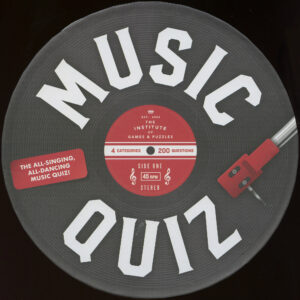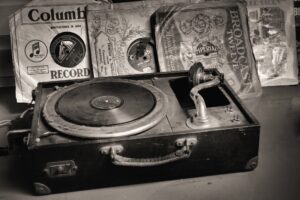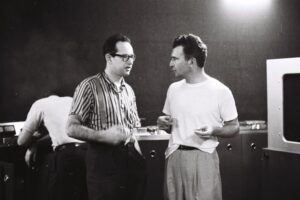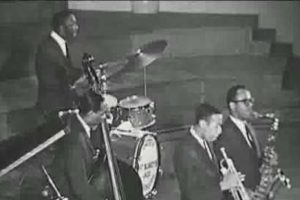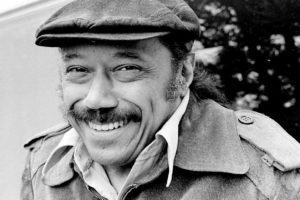Here is the beginning of jazz pianist Bud Powell’s bio at Wikipedia:
Earl Rudolph “Bud” Powell (September 27, 1924 – July 31, 1966) was a jazz pianist who was born and raised in Harlem, New York City. His greatest influences on his instrument were Thelonious Monk, who became his close friend, and Art Tatum. Along with Charlie Parker and Dizzy Gillespie, Powell was a key player in the development of bebop, and his virtuosity as a pianist led many to call him the Charlie Parker of the piano. (Continue Reading…)
NPR’s bio is striking starts out in about the same way:
Powell pioneered the revolutionary bebop sound along with alto saxophonist Charlie Parker, trumpeters Dizzy Gillespie and Miles Davis, pianist Thelonious Monk, and drummer Max Roach. Pianist Bill Evans considers Powell the most underestimated figure in this elite group, though Davis himself called Bud “the greatest pianist in this era.” Bud’s playing always appealed to great musicians, and his rehearsals at home often drew a crowd of them. (Continue Reading…)
It wasn’t a happy life, however, according to the bios. Here is one at AllMusic:
A breakdown in 1951 and hospitalization that resulted in electroshock treatments weakened him, but Powell was still capable of playing at his best now and then, most notably at the 1953 Massey Hall Concert. Generally in the 1950s his Blue Notes find him in excellent form, while he is much more erratic on his Verve recordings. His warm welcome and lengthy stay in Paris (1959-1964) extended his life a bit, but even here Powell spent part of 1962-1963 in the hospital. He returned to New York in 1964, disappeared after a few concerts, and did not live through 1966. (Continue Reading…)
Here is a site devoted to Powell, with a great photo taken by Francis Wolff on the home page. NPR offers its take on five essential Powell records.
The amazing version of Get Happy above does as a good a job of explaining bebop as any song I’ve heard. Below is Anthropology, which was written by Charlie Parker and Dizzy Gillespie.

